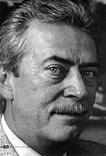 Edmund Burke was an amateur motorcycle racer, tuner and dealer who later became a research and design manager for Yamaha Motor Corp. U.S.A. He is credited with leading the development of 36 models from 1971 to 2002, including some of Yamaha’s most notable cruiser lines, such as the Royal Star, Road Star and Virago.
Edmund Burke was an amateur motorcycle racer, tuner and dealer who later became a research and design manager for Yamaha Motor Corp. U.S.A. He is credited with leading the development of 36 models from 1971 to 2002, including some of Yamaha’s most notable cruiser lines, such as the Royal Star, Road Star and Virago.
Born April 9, 1943 in St. Charles, Mo., Burke’s first motorcycle was a Cushman Eagle he bought as a teenager. He served in the U.S. Army from 1961-64. Burke was initially based overseas, but returned to serve his remaining tour at Fort Walters, Texas. He began racing in sportsman class scrambles, enduro, flat track, roadrace and hillclimb events in Texas and Oklahoma.
Burke returned to St. Charles in 1964 and shortly thereafter opened First Capitol Sports Center, a franchised Yamaha, BSA, BMW and Husqvarna dealership. In 1967 he joined Yamaha International Corporation as a district manager for 12 eastern and midwest states. He continued racing in sportsman classes, and in 1968 he began building and tuning AMA Class C roadrace bikes for Ron Muir. In 1969 they won the Daytona 100 Amateur Big Bike Race on a 350 Yamaha. Burke also helped to promote the 1969 Trans-Am motocross races with fellow AMA Motorcycle Hall of Famer Edison Dye.
In 1971 Burke relocated to Orange County, Calif., and was promoted to product planning manager at Yamaha International headquarters. He was later promoted to division manager for research and design, where his responsibilities included consumer research, new product concept design and product planning. Over the next 30 years he would direct the conceptualization, development and market delivery for 36 motorcycle models, leading Cycle World magazine to call him, “… the point man in the modern cruiser movement." In 1988 Cycle World also listed Burke as one of the “10 Most Influential People in American Motorcycling."